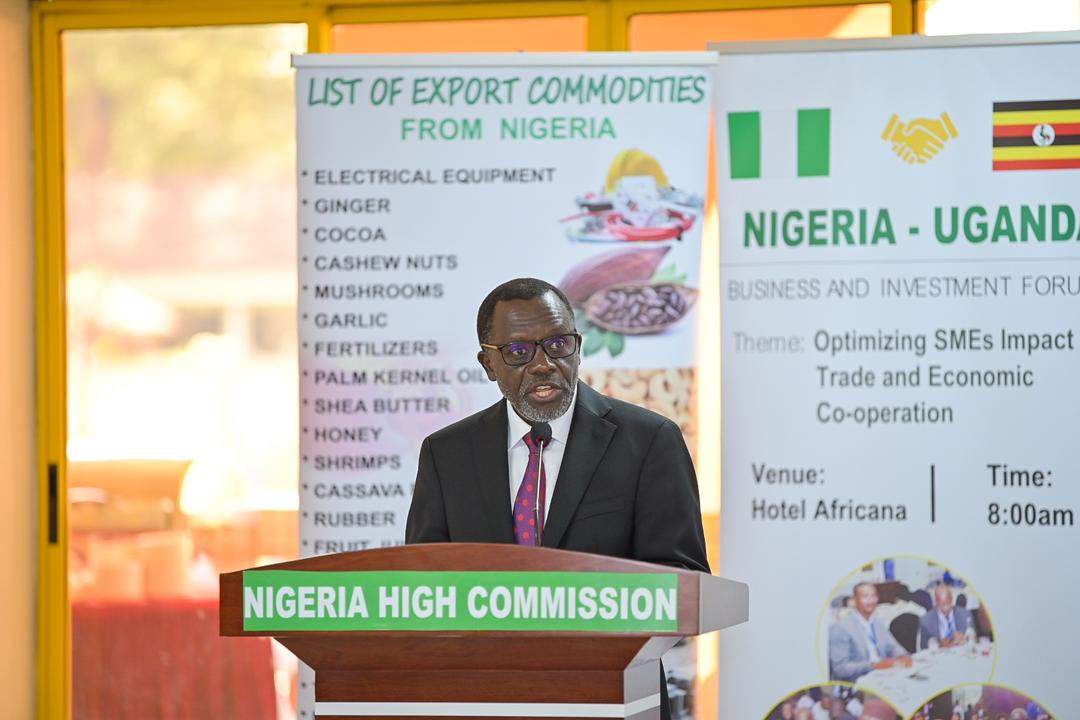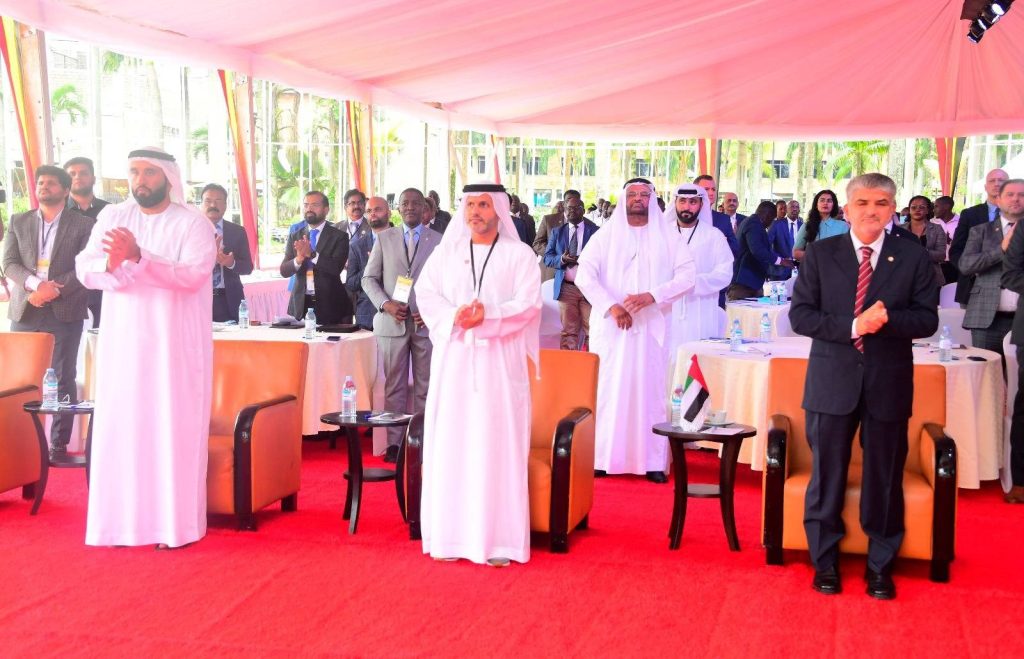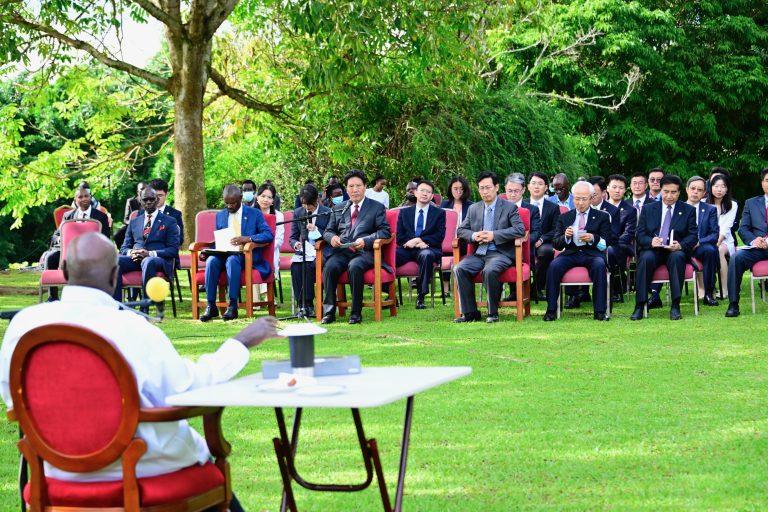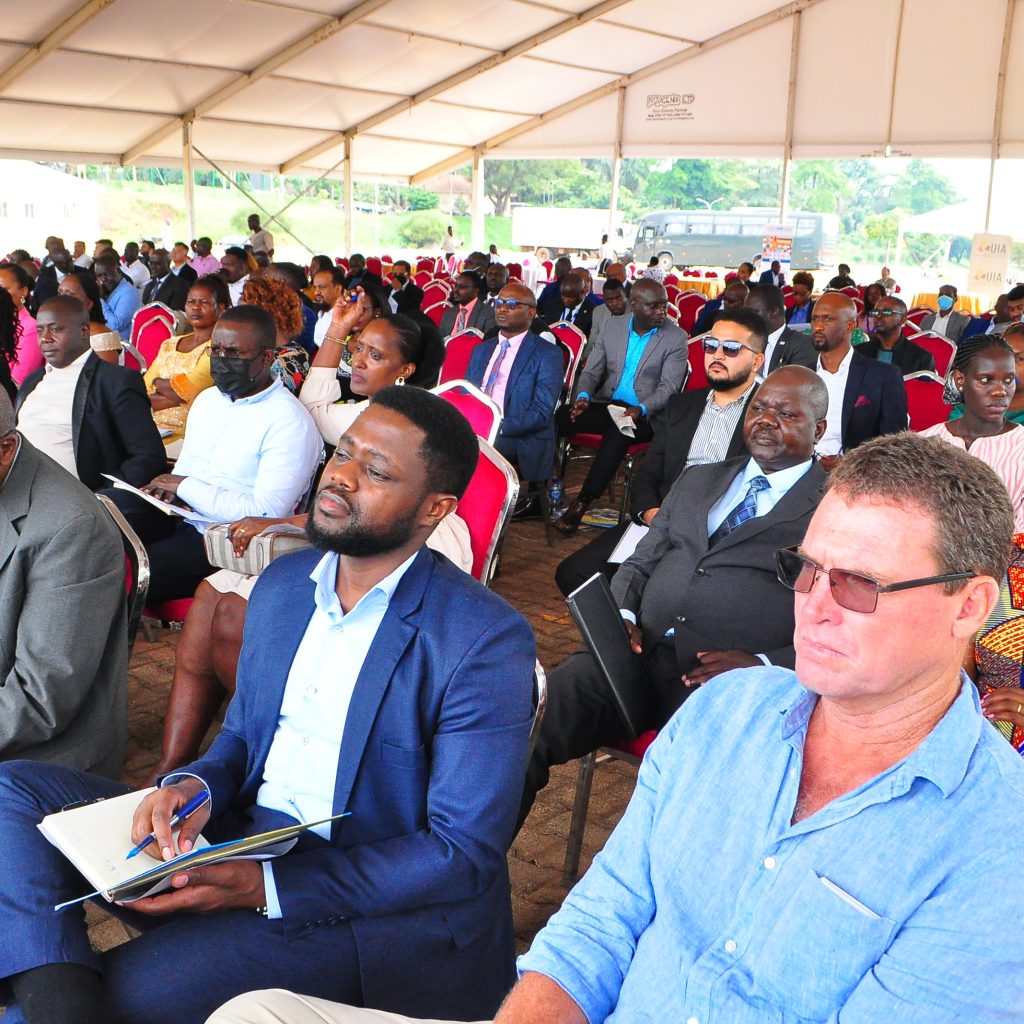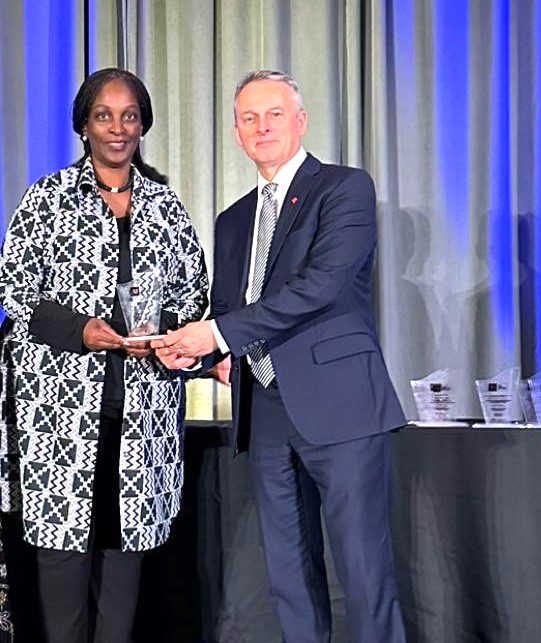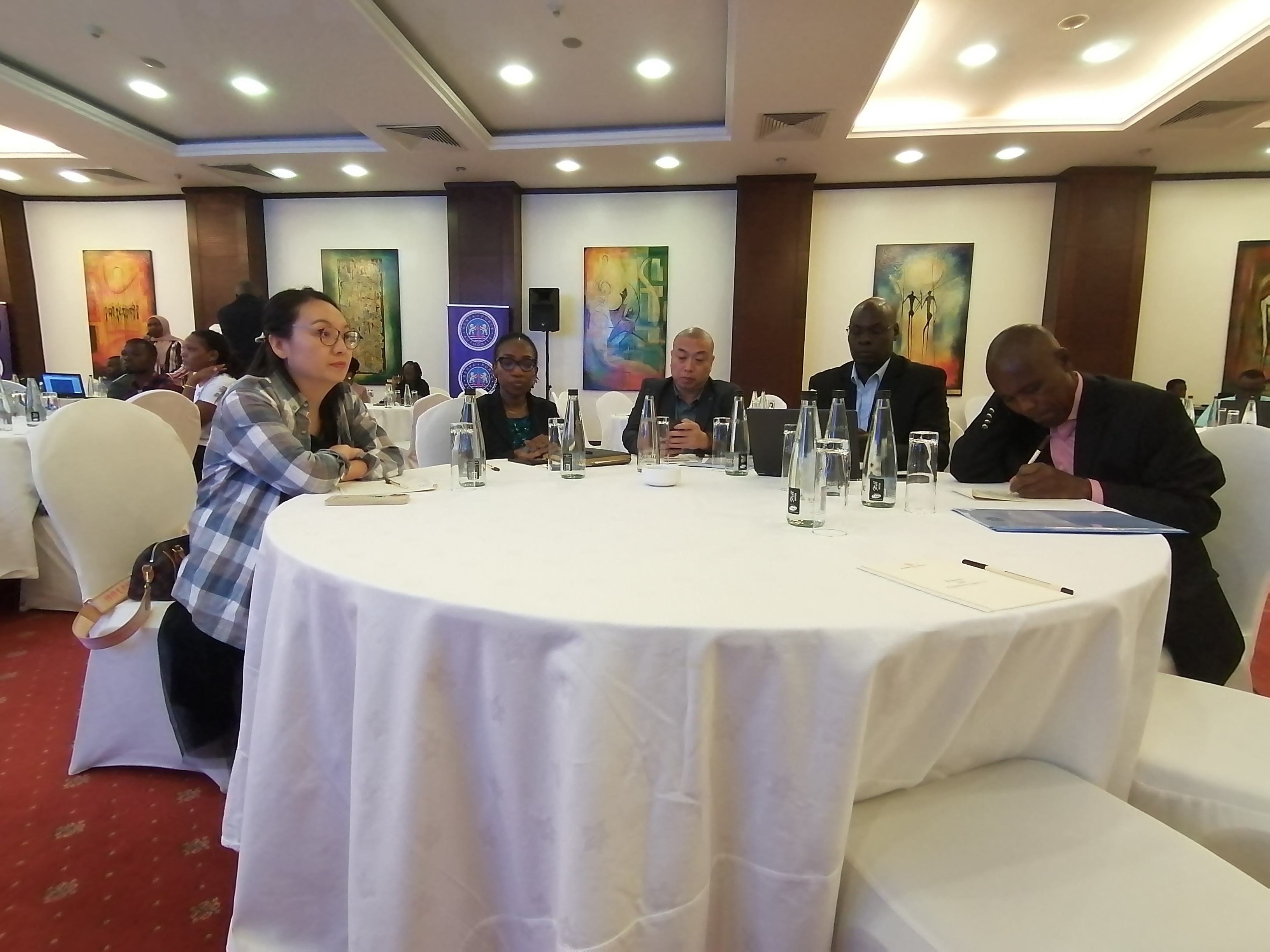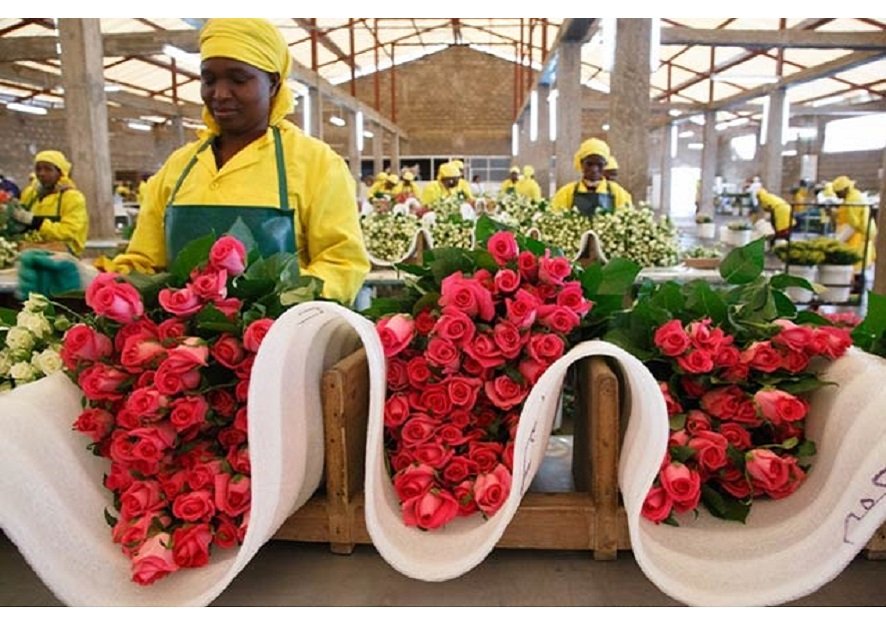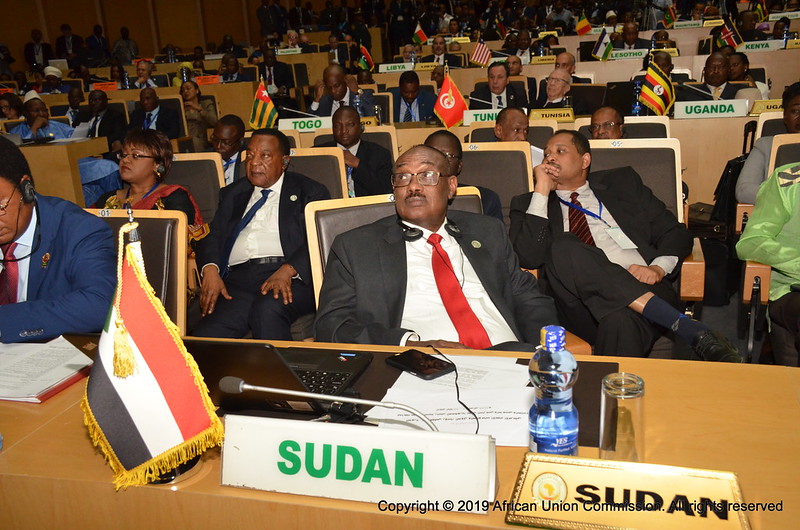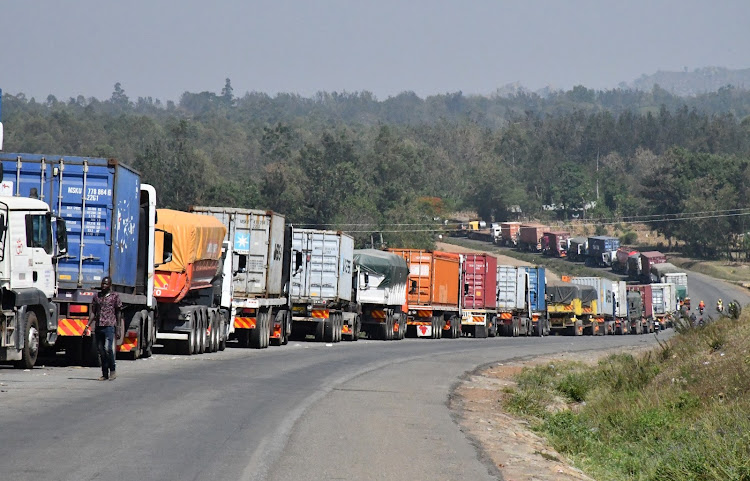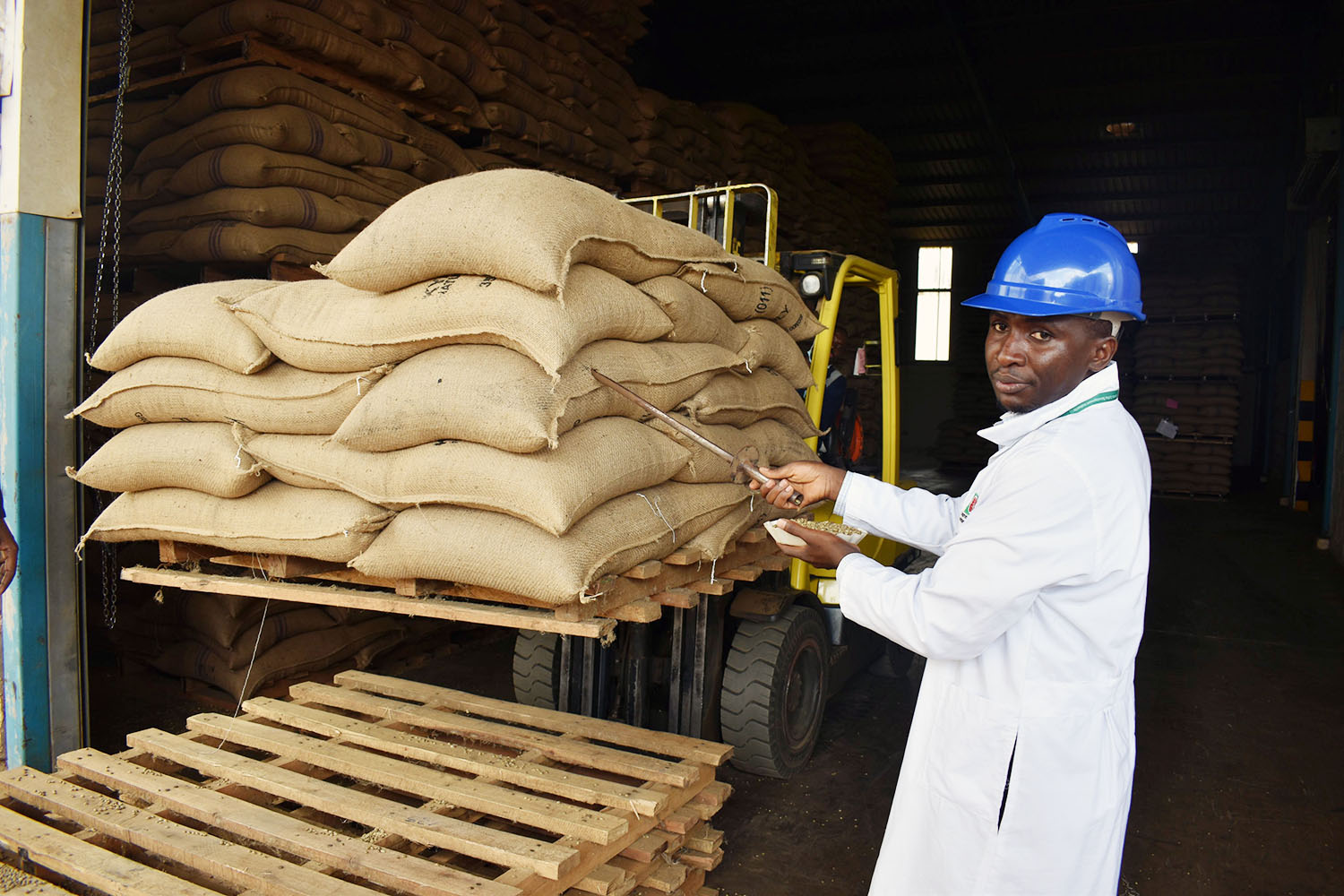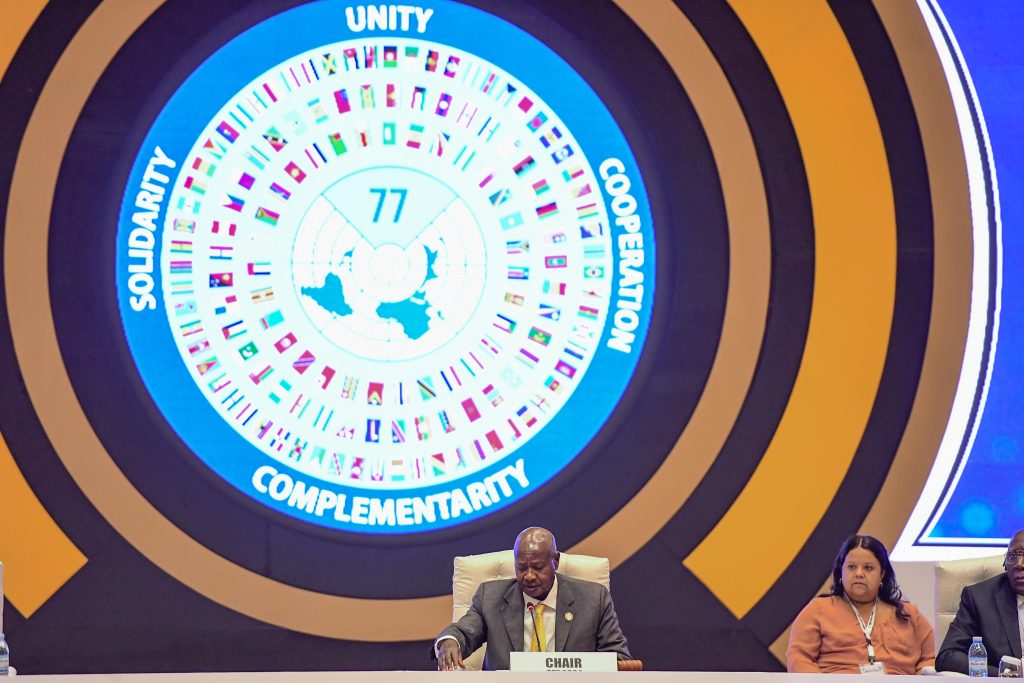EABC wants uniform Common External Tariffs

EABC Chairperson Angelina Ngalula (front row 2L) flanked by her deputy Simon Kaheru (L) pose for a group photo with the Uganda Manufacturers Association (UMA) team led by Chairman Deo Kayemba (2R, front row) and CEO Ezra Muhumuza (R), after deliberations on challenges facing industrial growth and expansion within the East African Community (EAC) at the UMA head offices in Kampala recently.
The East African Business Council (EABC) has urged regional governments of the East African Community (EAC) to uniformly apply the EAC Common External Tariff (CET) in a bid to boost intra-EAC trade, investment, and regional value chains.
The private sector trade umbrella says the common external tariff must be uniformly applied because it is a vital component of the EAC Customs Protocol, designed to facilitate intra-trade and create a level playing field within the EAC Customs Territory by providing a uniform tariff structure for products imported from outside the EAC bloc.
A common external tariff (CET) is a uniform tariff rate applied by a group of countries in a trading bloc to imports that are sourced from countries outside the group, which helps to create a unified trade policy that simplifies and harmonizes trade regulations among member states, while also protecting local industries from external competition.
- According to Simon Kaheru, the vice chairperson of the EABC, the effectiveness of the CET has been diluted by the continued use of Stays of Applications and Country-Specific Duty Remissions, which distort the market.
A ‘stay of application’ refers to a court order that temporarily halts or suspends the enforcement of a legal action or decision, while a ‘country-specific duty remission’ refers to the reduction or elimination of import duties or tariffs on goods coming from a particular country, typically as part of a trade agreement.
"There is a need for public-private dialogues and private-to-private partnerships to drive the uniform implementation of the EAC-CET to boost intra-trade," Kaheru said during a post budget webinar under the theme; ‘Disparities in the Applications of EAC-CET and Impact on EAC Businesses,’ over the weekend.
- It should be noted that the EAC currently implements a four-band CET with a minimum rate of 0% for raw materials and capital goods; 10% for intermediate goods not available in the region; 25% for intermediate goods available in the region and 35% for imported finished products available in the region.
Adrian Njau, the acting Executive Director of the EABC, said this current band is aimed at promoting value addition, regional value chain integration, intra-EAC trade, and safeguarding regionally produced products against similar imports from outside the EAC. He said if effectively implemented, the maximum tariff of 35% could increase intra-EAC trade by $18.9 million and create 6,700 jobs.
“Our partner States agreed on the 35% maximum tariff after analysis showed it would increase revenue by 5.5%, boost intra-regional trade, reduce imports, promote value addition, attract foreign direct investment (FDI), and create employment opportunities,” he explained, adding that unfortunately, these benefits are undermined by the non-uniform application of the CET, adding that in the current financial, there are 1,956 tariff lines under Stays of Applications (SOAs), with Uganda leading with 901, followed by Kenya (816), Rwanda (116), Tanzania (89), and Burundi (24).
According to Donald Tindamanyire, the Principal Customs Officer, Tariffs and Valuation at the EAC Secretariat, most SOAs were on products attracting a 25% import duty, accounting for 77% of all SOAs, followed by products attracting a 35% import duty, which accounted for 25% of all SOAs. He noted that the sectors most affected by SOAs include cotton, textiles, and apparel, followed by iron and steel, and agro-processing.
Josephat Karanja, the Manager of Tax Consulting at RSM Eastern Africa, pointed out that the lack of uniform application of the CET creates an unleveled playing field, as production attracts different import duties across countries, leading to market distortions.
- The webinar, which convened over 100 industry leaders and government officials from across the region, highlighted the importance of the CET in Karanja urged the EAC partner States to honor the CET, which he said was established to protect the common interests of various partner States by safeguarding specific sectors. “The annual SOAs, effective for only one year, create uncertainties for manufacturers
- Other key recommendations included building productive capacities in the region, harmonizing private sector positions on the CET, protecting local industries, applying regional duty remission schemes to promote East African manufacturers, developing industrial infrastructure for priority value chains such as leather, and promoting dialogue between the private and public sectors to address emerging issues regarding the CET's implementation.
They also emphasized the need to assess the impact of the EAC-CET 2022 on Foreign Direct Investment and regional investment, to evaluate national and regional productive capacities, and to address challenges leading to the constant application of SOAs, particularly in the agro-processing, textile, and apparel sub-sectors.
“The uniform application of the EAC-CET is central to enhancing intra-EAC trade, promoting regional value chain integration, and fostering economic growth and development across the East African region,” Kaheru stressed.



.jpg)
